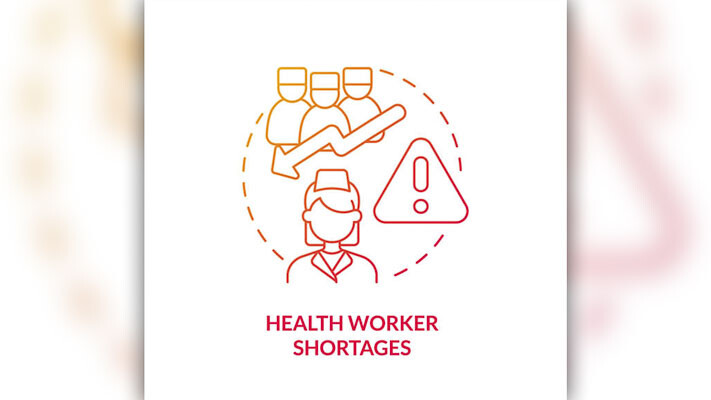
Elizabeth Hovde believes lawmakers should continue exploring ways to increase the current pipeline of nurses, avoiding unnecessary licensing restrictions
Elizabeth Hovde
Washington Policy Center
I wondered if this would start happening, as high pay for travel nurses is unsustainable, not to mention irritating when a nurse lives down the street from a hospital where he or she used to be a regular employee. A New York health system, St. Peter’s Health Partners, is banning local travel nurses.

Nurses who live within a 50-mile radius of their workplace, according to WRGB, a CBS affiliate station in Albany, New York, won’t be able to take advantage of the high pay for travel nurses with St. Peter’s. That is part smart but also concerning.
Nurses in the workforce are rightly irritated that a travel nurse working alongside them makes more money than they do when the nurse lives in the area of their workplace. For some, travel nursing is seen as a good way to make money, not just a way to help out where needed while traveling the nation. Travel nursing has strayed from its original purpose, and the high cost isn’t healthy for the system of care we all rely on, adding to higher health care costs.
Dr. Steven Hanks, the president and CEO of Trinity Health New York, told WRGB, “What we’re experiencing in the post-pandemic period is that our travel staff are more likely to not be actually traveling, and instead are moving over from neighboring facilities in order to take advantage of the enhanced rates.”
That doesn’t mean states should ban travel nursing, as our state did until just this year with the passage of legislation allowing us to join the Nurse Licensure Compact (NLC). There are special circumstances — like pandemics and staffing shortages — in which hospitals have no choice but to hire labor from outside their market to meet the needs of patients. States need to keep the window open to the benefits of the NLC, which equips nurses with a multistate license that allows them to put their skills to use in any state that is part of the compact. It’s an important issue for health care and worker rights. (Washington state became the 38th state to pass legislation — Senate Bill 5499 — to join the NLC. It is awaiting implementation now.)
Nurses in the New York system are rightly worried about workplace conditions that a ban on local travel nurses could bring. They’re concerned it will result in more patients per nurse. In states or hospitals with rigid staffing ratios, meeting the needs of patients is even more complicated and dangerous.
I asked the Washington State Hospital Association (WSHA) what it thinks about a ban on local travel nurses.
Chelene Whiteaker, WSHA’s senior vice president of government affairs, said the association would be watching to see the impacts in New York. “The challenge with all of this is, at the end of the day, hospitals have patients who need care.” Agreed. “Our hospital’s leaders have said they would prefer flexibility over restrictions because they worry about negative impacts to patients,” she said, adding, “We don’t know what the future holds here and as hospital finances continue to be in the negative, policy positions can change. We are monitoring the situation in our state.”
WSHA also is eager to see data about the travel nursing market in Washington state, as is now required. Senate Bill 5547, also passed this last legislative session, requires nurse-staffing agencies to report many things, including the number of placements they make that are within 25 and 50 miles of a health or long-term care personnel’s residence.
Fixing nurse staffing woes in Washington state will ultimately depend on the production of more nurses here. Lawmakers should continue exploring ways to increase the current pipeline of nurses, avoiding unnecessary licensing restrictions.
Elizabeth Hovde is a policy analyst and the director of the Centers for Health Care and Worker Rights at the Washington Policy Center. She is a Clark County resident.
Also read:
- Letter: ‘Thank you, Rep. Ley, for standing up and working to protect the hardworking residents of Southwest Washington’Camas resident thanks Rep. John Ley for standing against rising taxes.
- Letter: ‘Fossil fuel investments contribute to climate change, harming human health, compromising agriculture’Audrey Michelle Atchley urges WSU Foundation to divest from fossil fuels.
- Opinion: Senate Bill 5798 is a massive tax increase on the homeowners of WashingtonSenate Bill 5798 could dismantle property tax protections and raise costs for Washington homeowners.
- Who Should Clean Up Our Highways? Cast Your VoteClark County residents weigh in on who should take the lead in cleaning up roadside litter along area highways and freeways.
- Opinion: An assault on affordability – What the new budget proposals mean for youRep. John Ley says new state budget proposals could worsen affordability in Washington by increasing gas taxes, property taxes, and vehicle fees.










